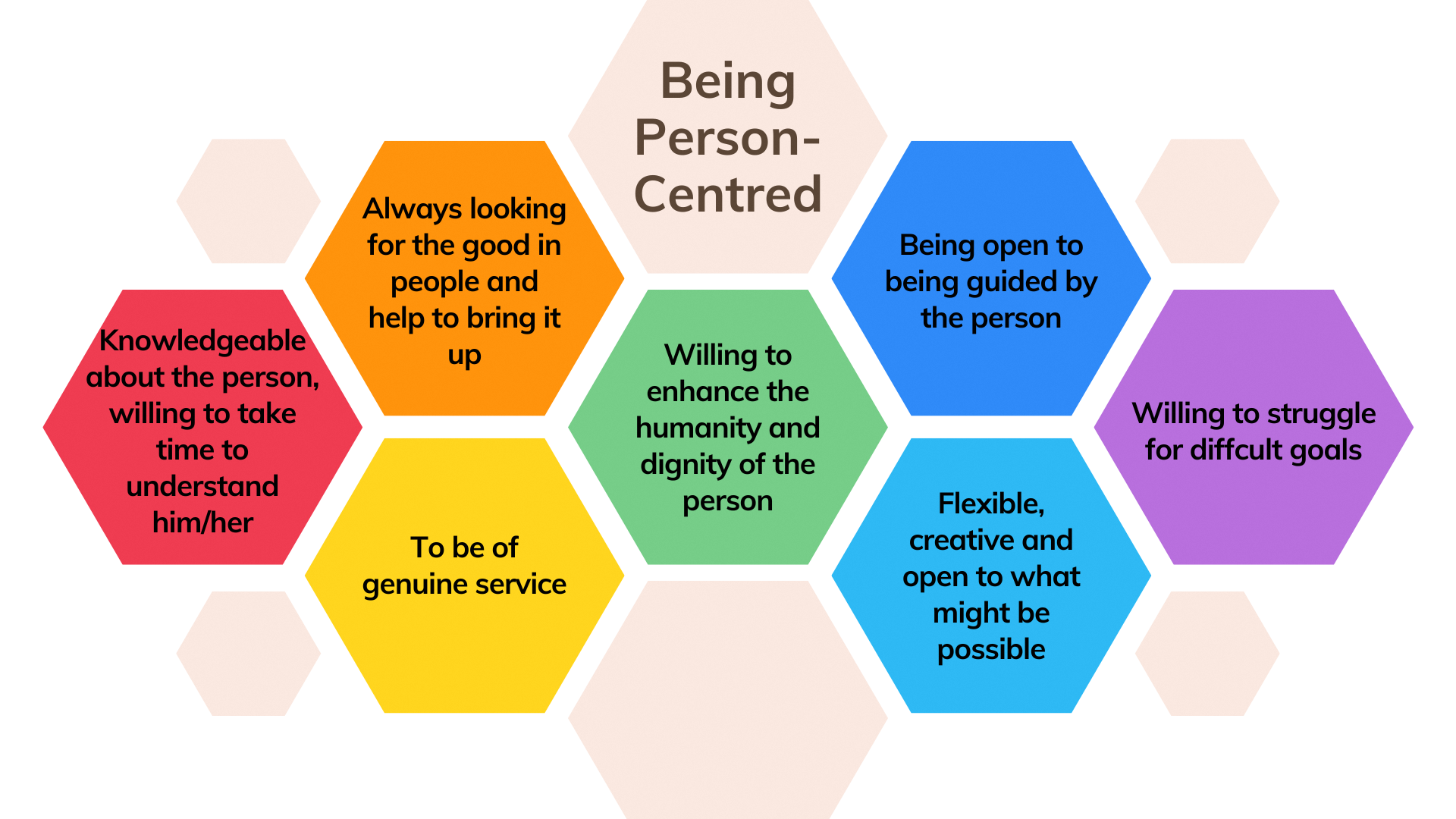Understanding Person Centred Planning
Person-Centred Planning
Person-Centred Planning (PCP) is a transformative process that seeks to place the individual in the driver's seat of their own life journey, by placing a focus on understanding the aspirations and wants of individuals with disabilities, through an intentional shift from others' perceptions of their needs.
Imagine a world where every person with a disability has the power to shape their own future, where their voice is not just heard but actively sought out and respected. This is the world that PCP aims to create.
Key Principles
• Placing the individual at the heart of all decision-making
• Prioritising personal aspirations over perceived limitations
• Focusing on strengths and capabilities, not deficits
Why It Matters
The narrative around disability support is usually dominated by the voices
of caregivers, professionals, and society at large. While well-intentioned,
this approach often inadvertently sidelines the very people it aims to
support.
PCP flips this script. It recognises that no one is more expert in a person's life than the individual themselves. By actively involving people with disabilities in planning for their lives, we ensure that the support provided truly reflects their own aspirations, choices, and dreams.
Person-Centred Planning in SPED
PCP is a core feature in Special Education (SPED). In particular, PCP features strongly in Transition Planning to uncover each student's strengths, interests, and aspirations to help them achieve their dreams and aspirations when they graduate.
Implementing PCP in Transition Planning is a systematic process that fosters strong collaboration between educators and families. Through such partnerships, SPED students will be empowered to achieve the SPED 'Living, Learning, Working' (LLW) Outcomes.
The Process
PCP is not a one-time event, but an ongoing journey. It starts with understanding
the individual's hopes and dreams and involves creating a 'circle of support'
chosen by the person themselves. Personalised, actionable plans are developed
to help achieve their life goals.
Key elements of the process include:
• Introducing Transition Planning to families when their child turns 13
• Development of an Individual Transition Plan with post-school goals
• Family envisioning meetings to generate personalised post-school goals
• A coordinated and person-centred handover process from schools to adult
agencies
But perhaps most importantly, PCP is about doing things with people, not for them. It's about empowering individuals to take control of their own lives and futures, with the right support in place.
By embracing this approach, we move towards a more inclusive society where every voice is valued, and every individual has the opportunity to live life on their own terms. This shift in both mental and practice paradigms is essential to achieve the true spirit of PCP and realise better quality of life outcomes for individuals with disabilities.
To encapsulate PCP at a glance
Person-Centredness is...

Important Considerations in Person-Centred Planning
Click here to access resources on PCP!

